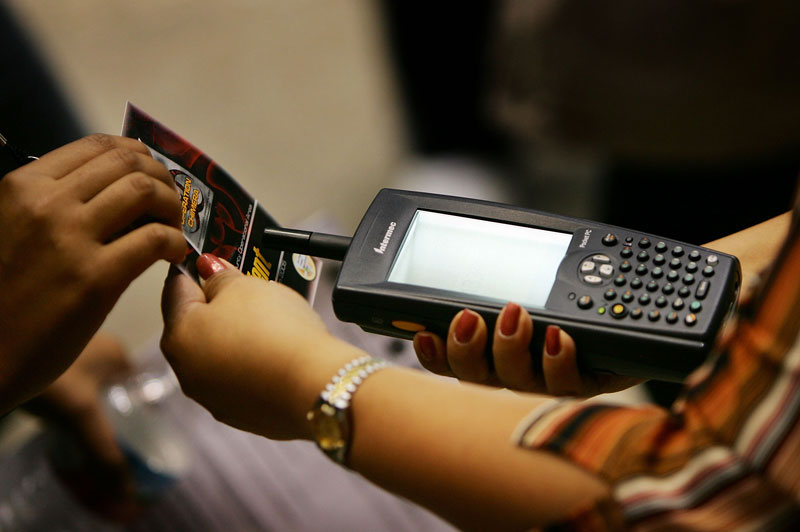The majority of credit and debit cards issued by banks are now contactless which means they contain a small wireless chip called a RFID tag which transmits data wirelessly. Access control: RFID tags are widely used in identification badges, replacing earlier magnetic stripe cards. Social media: Facebook is using RFID cards at most of their live events to allow guests to automatically capture and post photos. The automotive brands have adopted RFID for social media product placement more quickly than other industries.
Promotion tracking: To prevent retailers diverting products, manufacturers are exploring the use of RFID tags on promoted merchandise so that they can track exactly which product has sold through the supply chain at fully discounted prices. Transportation and logistics: Logistics and transportation are major areas of implementation for RFID technology.
Yard management, shipping and freight and distribution centers use RFID tracking technology. In the rail-road industry, RFID tags mounted on locomotives and rolling stock identify the owner, identification number and type of equipment and its characteristics. Infrastructure management and protection: At least one company has introduced RFID technology to identify and locate underground infrastructure assets such as gas pipelines, sewer lines, electrical cables, communication cables, etc. Originally meant for large ranches and rough terrain, since the outbreak of mad-cow disease, RFID has become crucial in animal identification management.
Transportation payments: In many countries, applications of rfid technology includ pay for mass transit fares on bus, trains, or subways, or to collect tolls on highways.Animal identification: CXJ RFID tags for animals represent one of the oldest uses of RFID technology. Human identification: Implantable RFID chips designed for animal tagging are now being used in humans. An early experiment with RFID implants was conducted by British professor of cybernetics Kevin Warwick, who implanted a chip in his arm in 1998. The tag can contain identifying information or may just be a key into a database.
Hospitals and healthcare: Adoption of RFID in the medical industry has been widespread and very effective. Hospitals are among the first users to combine both active and passive RFID technology. An RFID system may replace or supplement bar codes and may offer another method of inventory management and self-service checkout by patrons. Pundits for the technology claim that applications of rfid technology will eventually replace the bar code.







